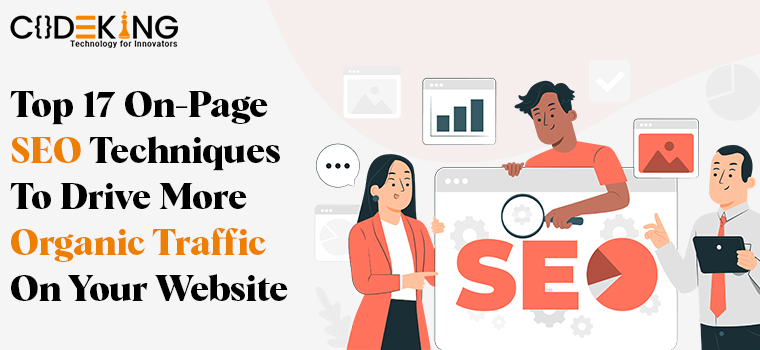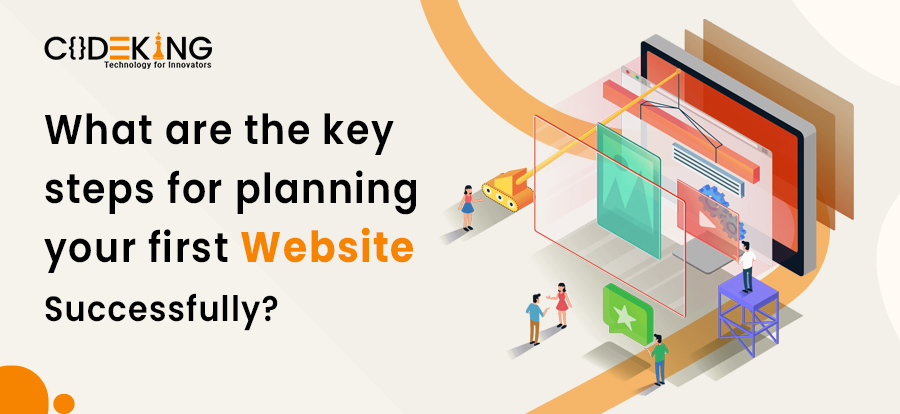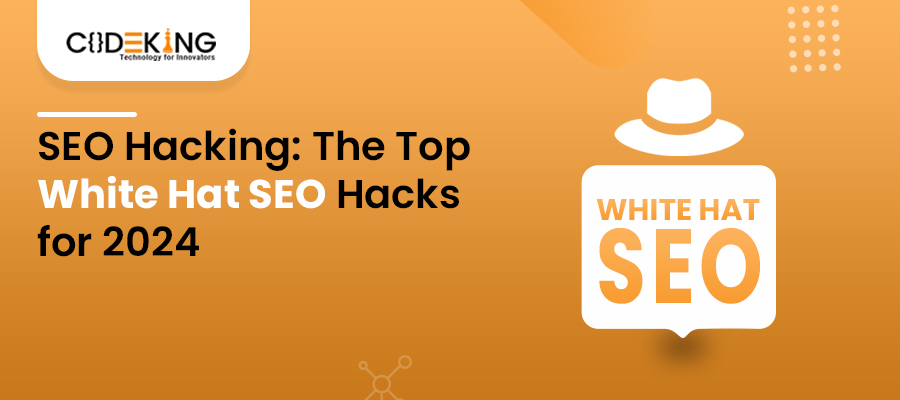In the era of digital marketing, on-page SEO (Search Engine Optimization) remains a crucial aspect of boosting your website’s visibility and driving organic traffic. To succeed in the online world, it’s essential to understand the fundamentals of on-page SEO and employ effective techniques.
What is On-Page SEO?
On-page SEO refers to the process of optimizing individual web pages to enhance their visibility in search engine results. Unlike off-page SEO, which focuses on external factors such as backlinks and social signals, on-page SEO is all about fine-tuning your website’s content and elements to make it more appealing and relevant to both users and search engines.
In essence, on-page SEO is about making your content easily discoverable by search engines like Google, Bing, or Yahoo. This involves optimizing various on-page elements, such as keywords, meta tags, images, and internal linking, to improve your website’s search engine rankings.
Why On-page SEO is Important For Getting The Organic Traffic?
The importance of on-page SEO cannot be overstated. Here are a few compelling reasons why it’s essential for your online success:
- 1. Better Search Engine Rankings
An effectively optimized website is more likely to rank higher in search engine results pages (SERPs). When your site appears closer to the top, you’re more likely to attract organic traffic, as users tend to click on the first few results.
- Enhanced User Experience
On-page SEO isn’t just about search engines; it’s also about delivering a better experience for your visitors. By improving the structure and content of your site, you make it more user-friendly and engaging, which can result in longer visits and higher conversion rates.
- Competitive Advantage
In the fiercely competitive online space, on-page SEO can set you apart from your competitors. A well-optimized site can outperform those that neglect these crucial details, giving you a significant edge in your niche.
- Better Click-Through Rates (CTR)
When you optimize your title tags and meta descriptions, you can craft compelling snippets that entice users to click through to your website. A higher CTR can boost your organic traffic without necessarily improving your rankings.
How to Create SEO Content That Will Boost Your Revenue?
Creating content that is SEO-friendly starts with an understanding of your target audience and relevant keywords. Here’s how you can create SEO content that resonates with both users and search engines:
- Keyword Research
Start by conducting thorough keyword research to identify the terms and phrases that your potential visitors are using to search for content related to your niche. Utilize keyword research tools like Google Keyword Planner or Ubersuggest to discover relevant keywords.
- High-Quality Content
Craft high-quality, informative, and engaging content that fulfils the needs of your audience. Content that resonates with readers tends to perform better in search rankings.
- Use Headings
Use proper headings (H1, H2, H3, etc.) to structure your content. Headings not only make your content more scannable but also help search engines understand the hierarchy and importance of information on your page.
- Write Compelling Titles and Meta-descriptions
Your page’s title tag and meta description are the first things users see in search results. Craft these elements to be concise, relevant, and compelling to encourage clicks.
How to Optimize Your Content To Meet Your Target Audience?
Once you’ve created your SEO content, it’s time to optimize it to improve its visibility and relevance. Here are some essential on-page SEO techniques for content optimization:
- Optimize URLs
Ensure that your URLs are clean and concise, and include your target keyword. Avoid using long, convoluted URLs with unnecessary parameters. A clean URL structure makes it easier for both search engines and users to understand the page’s content.
- Use Keyword Variations
Incorporate relevant keyword variations and synonyms throughout your content. This not only makes your content more comprehensive but also helps you rank for a broader range of search queries.
- Optimize Images
Images can play a significant role in on-page SEO. Use descriptive file names, alt text, and captions for images to provide context to search engines. Compress images to ensure faster page load times, which can positively impact your ranking.
- Internal Linking
Link to other relevant pages on your website using internal links. This helps distribute the link equity throughout your site and improves the user’s experience by guiding them to related content.
- Mobile Optimization
With the rising use of mobile devices, it is critical to ensure that your website is mobile-friendly. Google and other search engines prioritize mobile-responsive sites, and non-responsive websites may see a drop in rankings.
- Page Loading Speed
A slow-loading website can lead to a high bounce rate and poor search engine rankings. Optimize your site’s performance by compressing images, minimizing HTTP requests, and using browser caching.
Also Read: Main types of Marketing Research which help you in your business
What Are Advanced On-Page Optimization Techniques That You Must Know in 2023?
Beyond the basics, there are advanced on-page SEO techniques that can further elevate your website’s visibility and performance. These techniques require a deeper understanding of SEO principles:
- Schema Markup
Implementing schema markup can provide search engines with structured data about your content. This helps search engines better understand your content, which can lead to rich snippets in search results, such as star ratings, event dates, or FAQ sections.
- HTTPS Encryption
Secure your website with HTTPS encryption. Not only does this provide a safer browsing experience for your users, but Google also favours secure websites in its ranking algorithms.
- Content Silos
Organize your content into thematic silos or categories. This not only helps users navigate your site more easily but also allows search engines to understand the relationship between different pieces of content.
- User Intent Optimization
Knowing the user intent is critical for optimizing your content. Create content that directly addresses the needs and questions of your target audience. This requires in-depth research and the creation of content that aligns with various user intents, such as informational, transactional, or navigational.
- Voice Search Optimization
With the development of speech-activated gadgets and virtual assistants, optimising your content for voice search is becoming increasingly vital. Use natural language, answer questions concisely, and ensure your content is easily digestible for voice search users.
- Content Updates
To keep your information relevant and up to date, update and refresh it frequently. Search engines prefer fresh and current content, and users appreciate accurate information.
- International SEO
If your target audience is global, consider international SEO techniques such as ahreflang tags and geotargeting to reach users in different countries and languages effectively.
What Are The Top 10 On-Page SEO Factors That Affect Webpage Ranking?
To further enhance your understanding of on-page SEO, it’s essential to be aware of the most influential on-page factors that can affect your webpage’s ranking. Here are some of the key elements:
- Content Quality
On-page SEO is built around creating high-quality, useful, and engaging content. Create content that provides value to your audience and answers their queries effectively.
- Keyword Usage
Strategically use relevant keywords throughout your content, including in titles, headings, meta tags, and naturally within the body of the text. Keyword stuffing can affect your rankings.
- Mobile-Friendliness
Ensure your website is responsive and provides an excellent user experience on various devices, especially mobile phones and tablets.
- Page Loading Speed
Fast-loading pages improve user experience and lead to improved search engine rankings.. Compress images, minimize code, and leverage browser caching to improve your site’s loading speed.
- User Experience (UX)
A user-friendly website design and navigation structure can reduce bounce rates and increase user engagement. Clear call-to-action buttons and intuitive menus contribute to a positive user experience.
- Internal Linking Structure
Create a logical and well-organized internal linking structure that guides users to related content within your website. This not only enhances user experience but also helps search engines crawl and index your site more effectively.
- Social Signals
While the direct impact of social signals on SEO rankings is debated, a strong social media presence can increase brand visibility and drive more traffic to your website, indirectly influencing your search rankings.
- Secure Website (HTTPS)
Implementing SSL encryption (HTTPS) ensures a secure connection between your website and users. Google considers secure websites as a ranking factor, providing an additional layer of trust for your visitors.
- Page URL Structure
Create descriptive, concise, and user-friendly URLs that reflect the content of the page. Avoid using complex URL structures with unnecessary parameters or symbols.
- Outbound Links
Include outbound links to credible and authoritative sources within your content. This not only adds value to your readers but also signals to search engines that your content is well-researched and trustworthy.
Therefore, mastering on-page SEO techniques is essential for improving your website’s visibility, attracting organic traffic, and staying ahead in the competitive digital landscape. Thus, by focusing on creating high-quality, user-friendly, and well-optimized content, you can significantly enhance your website’s search engine rankings and provide a valuable experience for your visitors. Stay updated with the latest SEO trends and algorithms, and continuously refine your on-page optimization strategies to ensure long-term online success.





